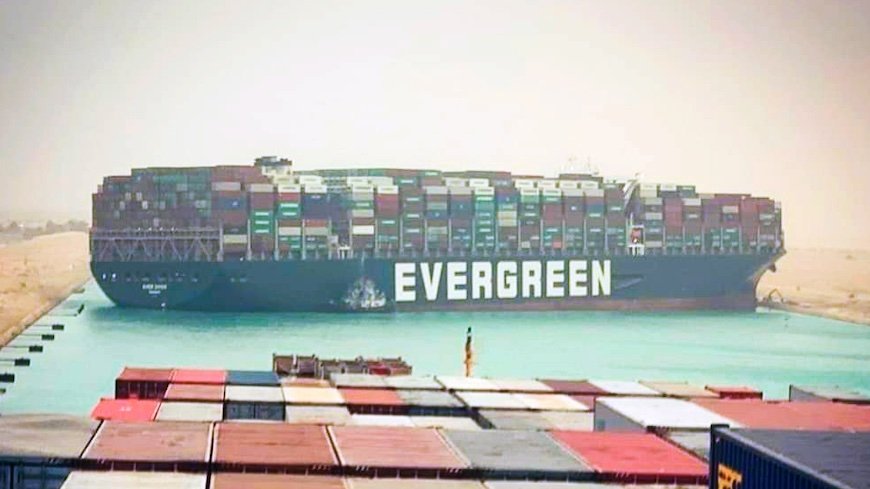A large container ship blocking the Suez Canal will exacerbate existing issues in the global supply chain, including delaying shipments of electronic components and devices for weeks to come — with that best case assuming it gets dislodged quickly.
The Ever Given, one of the world's largest shipping vessels, ran aground in the Suez Canal on Wednesday. The vessel, wedged sideways and blocking one of the world's busiest trade routes, has already caused a logjam consisting of hundreds of ships, and wider ramifications for navigation spreading much farther away. Although authorities are working to dislodge the ship within a few days, even a short logjam can have an impact on the global supply chain, CNBC reported Thursday.
Some of the immediate effects will include higher gas prices and extended shipping delays for most consumer products, including everything from furniture to electronics, logistics experts said.
The impact of the logjam is already being felt in "just-in-time" shipping chains. Other supply-side delays will be dependent on how quickly the ship can be dislodged. If the Ever Given remains stuck for a week or more, it will snarl shipping routes and add at least 10 extra shipping days just accounting for increased navigation time around Africa. Even if it's refloated more quickly, consumers will still feel the effects.
'A perfect storm' for the chip industry
About 12% of total global trade moves through the Suez Canal. And while most consumer products shipped to the U.S. reach the West Coast from Asia, rerouted traffic will congest ports that are already experiencing delays and backlogs due to the coronavirus pandemic and a surge in demand for consumer electronics.
It's hard to put a specific number on the delays that will impact the global electronics industry, which is currently suffering a severe chip shortage. But The Wall Street Journal reports that the blockage is only the latest in a series of problematic events for the semiconductor industry.
Most chipmakers ship their time-sensitive materials by air, so it isn't clear how much the assemblers will be impacted. Because of that, the Suez Canal incident is more likely to "affect the finished goods than the chip manufacturers themselves," Gartner Research analyst Alan Priestley told The Wall Street Journal.
Although the chip industry is used to rises and falls in demand, recent months have seen the market plagued by exaggerated effects that it isn't used to. One chip industry insider called the blockage and recent supply issues a "perfect storm." Many in the chip industry are monitoring the blockage for potential effects.
The cost could be passed to consumers
While authorities could refloat the vessel by the end of Thursday, some believe that's too optimistic of a timeline. Even then, waiting vessels won't immediately be able to move through the canal. Inspections of the trade route, as well as speed limits, will slow down a return to normal traffic. That's all assuming that the Ever Given hasn't suffered damage that would require it to be towed out of the canal slowly.
The longer the delay, the higher the price that could eventually be passed down to consumers.
"There are millions of dollars of commodities in the other ships, and if it is not cleared quickly then they will look to take other routes, meaning longer time, more fuel and more costs that could eventually be seen passed down to consumers," said marine cargo attorney Ian Woods.
Compared to other device makers, Apple has not been as affected by the global chip shortage. Additionally, it doesn't ship much via freight for mailed deliveries to customers after new launches. However, the company has seen supply issues in the past related to freight logjams, since it does periodically supply store stock by container vessel while simultaneously fulfilling customer orders by air.
 Mike Peterson
Mike Peterson







-m.jpg)






 Chip Loder
Chip Loder
 Wesley Hilliard
Wesley Hilliard
 Marko Zivkovic
Marko Zivkovic

 Christine McKee
Christine McKee
 Amber Neely
Amber Neely

 Malcolm Owen
Malcolm Owen








75 Comments
"Ever Given"?
My eyes see "Evergreen".
ETA: I stand corrected. Thanks guys.
This is how successful a supply chain could lead the world to.
Interesting. Seems like a coupla tugboats could free it, but what do Editorbs know.